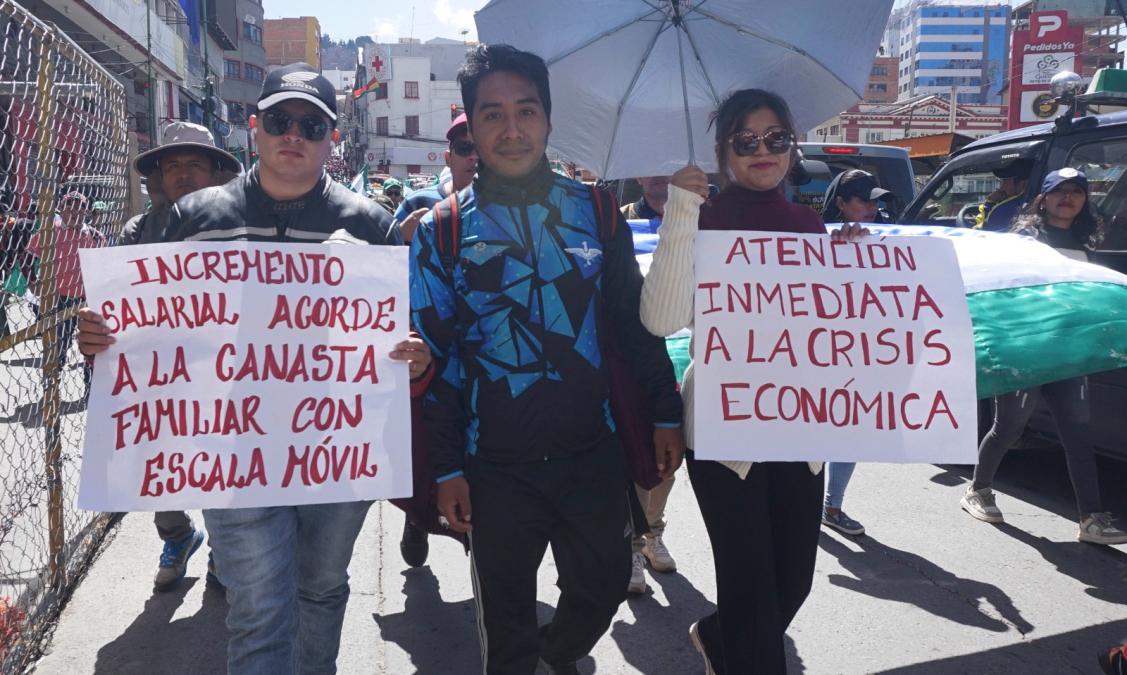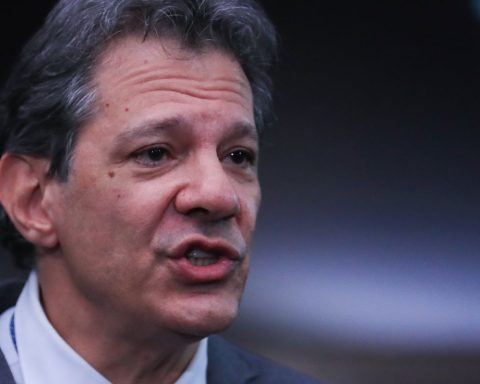The salary increase leads a set of 130 demands included in the petition sheet that the Bolivian Workers’ Central (COB) presented to the Central Government on March 13. Applications are organized in four thematic commissions. Yesterday, the Executive Power said that it is working on the viabilization of all these demands. For its part, the business sector warned that, if the demands of the parent entity, the social cost for companies could be increased by up to 41.7%.
In the document presented by the COB, the leadership demands a deep change in state policies, which goes from an emergency salary increase to structural reforms in the administration of the public manager, as well as the full guarantee of fundamental rights in key areas such as health, education and housing.
Within the framework of the Economic Commission, The leadership proposed an increase of 15% to the national minimum wage and 20% since there are basic. According to the COB, this measure seeks to counteract the impact of rise on the prices of essential products.
At the same time, COB in the issue of pensions, demanded an exhaustive audit of the public manager, In addition to a majority workers participation in their direction and structural reforms that guarantee decent and transparent retirements.
With about twenty demands, the Social Commission puts on the table the most pressing needs of the working population in essential areas.
In health, the demand for a Social Security Congress and compliance with previous agreements seek dignified and efficient attention. In education, the budget increase and curricular reform are pillars for quality training. And in housing, Cob Clama for real facilities for workers to access their own roof.
Favorable response
A month receiving this document, yesterday the Minister of Rural Development and Lands, Yamil Floreshe informed that the work of the Rural Development Subcommittee was culminated, an instance created within the Productive Commission with the aim of responding to the petition sheet presented by COB.
According to an institutional report, The union organization presented 18 consultations related to the current state and the prospects for rural developmentin addition to land management. Minister Flores personally led the technical work, in which vice ministers and directors participated, who offered detailed responses to each approach.
Among the topics discussed were included Agricultural policies, industrialization of strategic productsand the evolution of public investment in rural areas with a view to the country’s productive strengthening
“As a sign of compliance and full agreement with the work done during the last weeks, an act was signed together with the representatives of the Bolivian Workers’ Central. In that way, the part of the 2025 petition sheet referred to rural development and lands,” Flores said.
The authority added that the table analyzed matters referring to the fight against smuggling, reversal and land sanitation, In addition to recognition of the agricultural cooperative sector.
Meanwhile, the Ministry of Hydrocarbons and Energies and COB signed a 12 -point agreement that responds to the specifications of the parent entity of the workers.
About him salary riseboth parties still negotiate.
Rejection
Meanwhile, the Santa Cruz Construction Chamber (Cadecocruz) warned yesterday that the construction sector is not in a position to assume a possible salary increase, And he warned that the measure would only aggravate the economic crisis they face, causing mass layoffs and project stoppage.
In a statement entitled “Salary Increase … Put to Employment”, the institution expressed concern about a set of factors that, as indicated, have seriously deteriorated the situation of the sector: lto the shortage of currency for the purchase of materials, the shortage of fuel, The increase in supplies prices, the fall in public works by almost 60% and default in payments by state entities.
“The increase in the minimum and basic wage, regardless of the percentage, It multiplies exponentially and reaches 41.7% with social obligations”, Says the document. In addition, they question that the national minimum wage has risen 468% in the last 20 years without the voice of the private sector being heard.
Cadecocruz also regretted not been summoned to the negotiation tables of the salary increase, and warned that if approved, greater informality, poverty and loss of purchasing power would be generated. They criticized the lack of political will of the government to establish a tripartite dialogue in accordance with the Convention of the International Labor Organization (ILO).
In its pronouncement, the Chamber reiterated that a new salary increase “will cause irreversible damage to thousands of families” and directly affect the entire construction value chain.
The Federation of Micro and Small Business (Fedemype) expressed its concern on the possibility of a new salary increase, warning that the measure could accelerate the closure of productive units and deepen the economic crisis that the sector is going through.
Félix Huaycho, general secretary of the organization, said that Many microenterprises already operate with minimal margins of profitability, So an increase in salaries would be unsustainable for much of them.
“Now the salary increase is being raised and that affects us in a great way. This could mean a deeper crisis from which we already live, and will contribute to greater inflation in the nation marketL, ”he said.
According to the leader, more than 20,000 small productive units have closed their doors in recent months due to economic pressure.
The Chamber of Industry, Commerce, Services and Tourism of Santa Cruz (Cainco) expressed its rejection of an eventual Salary increase decreed unilateral by the Government, and proposed an alternative work agenda focused on economic sustainability and the generation of formal employment.
He warned that Bolivia faces one of its most delicate economic situation, with weakened international reserves, a persistent fiscal deficit and a paralyzed investment.
In that context, apply traditional measures such as generalized salary adjustments, without dialogue or technical analysis, “is not only ineffective, but irresponsible.”
“The real debate is not just salary. It is work,” says the document that proposes to replace the logic of annual increases.


















